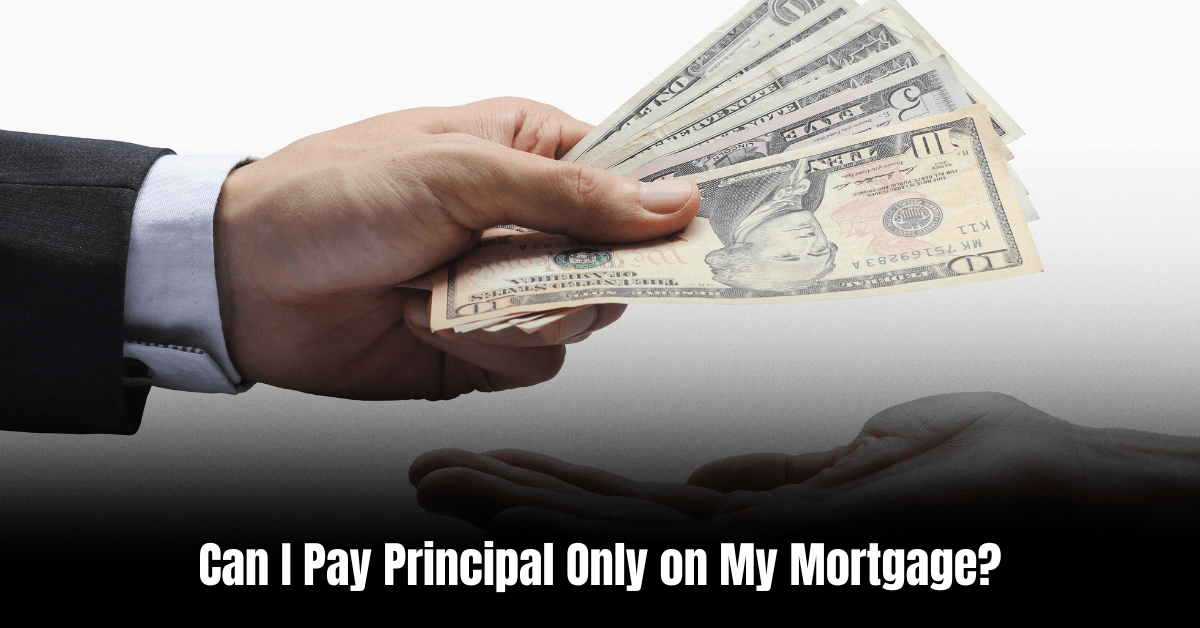As a homeowner, you may have wondered whether it’s possible to pay off the principal only on your mortgage. The prospect of reducing your mortgage debt faster and potentially saving money on interest can be enticing. In this article, we will explore whether this option is available, how it works, and its benefits and considerations.
What does it mean to pay principal only on a mortgage?
When you make your monthly mortgage payments, they typically include both principal and interest. The principal is the amount you borrowed to purchase your home, while the interest is the cost of borrowing the money from the lender. However, some mortgages may allow you to make additional payments that are applied exclusively to the principal balance.
By paying principal only, you are directly reducing the amount you owe on your mortgage, which can have a significant impact on the total amount of interest you’ll pay over the life of the loan.
How does paying principal only work?
To pay principal only on your mortgage, you need to contact your lender to discuss the process and ensure that they allow such payments. If they do, you can make additional payments specifically designated as principal payments.
It’s important to note that simply making a larger payment without specifying that it is for principal reduction may result in the extra funds being applied towards future interest payments or even prepayment penalties, depending on your loan terms.
By making regular principal-only payments, you can potentially reduce the overall term of your mortgage, pay less interest, and build equity more quickly. It’s an effective strategy for homeowners looking to accelerate their path to debt-free homeownership.
The benefits of paying principal only
1. Faster debt reduction: By making principal-only payments, you can lower your outstanding balance, allowing you to pay off your mortgage sooner than the original loan term.
2. Interest savings: Since you are reducing the principal on your loan, you will also decrease the amount of interest charged over time. This can potentially save you a significant amount of money in the long run.
3. Equity building: Paying down the principal helps you build equity in your home faster. Equity is the difference between the market value of your home and the remaining mortgage balance. Increasing equity can provide financial security and open up possibilities for future borrowing.
Considerations before paying principal only
1. Lender restrictions: Not all lenders allow you to make principal-only payments or may have specific rules or limitations. Make sure to check with your lender regarding their policies and any potential fees or restrictions that may apply.
2. Other financial obligations: Before allocating more funds towards your mortgage, ensure that you have taken care of other essential expenses and financial obligations, such as savings, emergency funds, and other debts.
3. Prepayment penalties: Some mortgage agreements have prepayment penalties, which means that if you pay off your loan balance before a certain period, you may incur additional charges. Familiarize yourself with your loan terms to understand if any penalties apply.
Frequently Asked Questions Of Can I Pay Principal Only On My Mortgage? Unlocking The Power Of Principal-only Payments
Can I Make Principal-only Payments On My Mortgage?
Yes, you can make principal-only payments on your mortgage, which can help you pay off your loan faster. Contact your lender for specific instructions.
How Will Making Principal-only Payments Affect My Mortgage?
Making principal-only payments can reduce the amount of interest you pay over the life of the loan, and can help you pay off your mortgage earlier.
Are There Any Penalties For Making Principal-only Payments?
Some lenders may charge a penalty for making principal-only payments. Contact your lender to understand their specific policies.
How Can I Request To Make A Principal-Only Payment?
You can request to make a principal-only payment by contacting your lender. They can guide you through the process and provide necessary instructions.
Conclusion
Paying principal only on your mortgage can be a smart financial strategy for homeowners looking to reduce their debt and save on interest. It’s essential to check with your lender about their policies and guidelines for making principal-only payments. By allocating extra funds towards principal reduction, you can potentially shorten your loan term, save money on interest, and build equity in your home more quickly.
Remember to consider any potential limitations, fees, or prepayment penalties that may apply. Evaluate your overall financial situation and priorities before deciding to pay principal only, ensuring that you have a secure financial foundation.
Ismail Hossain is the founder of Law Advised. He is an Divorce, Separation, marriage lawyer. Follow him.





Leave a Reply